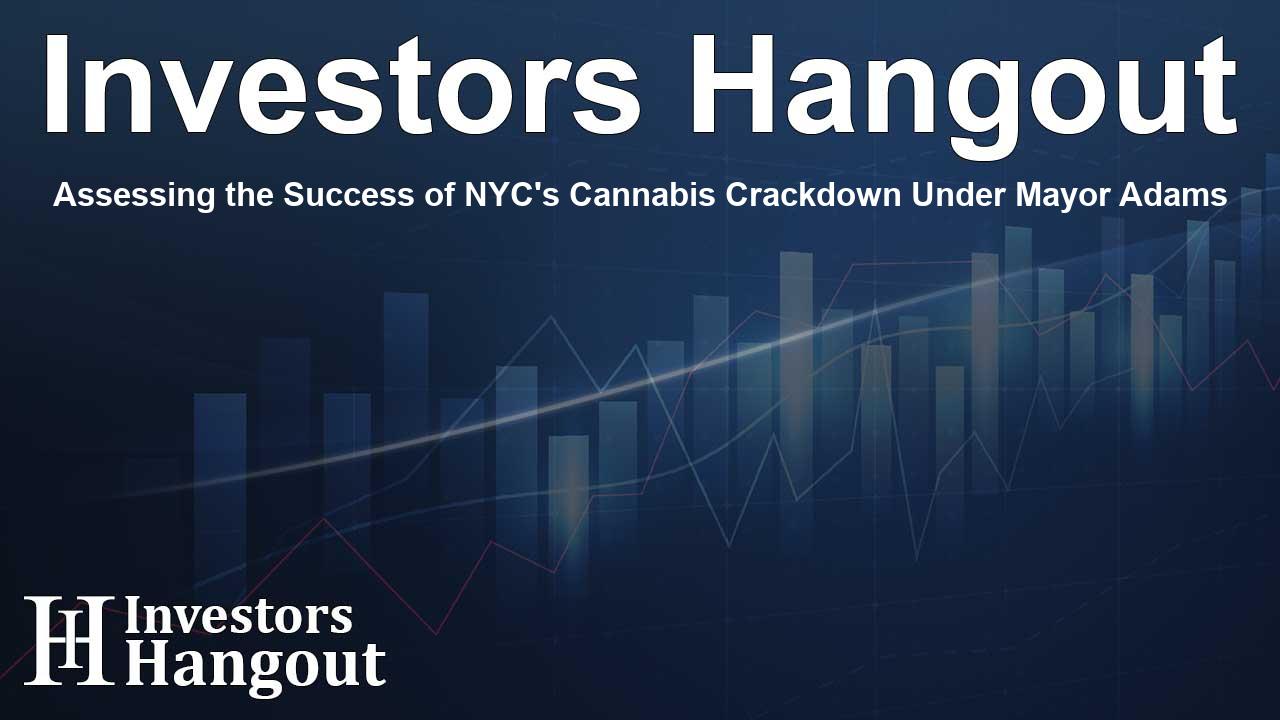Assessing the Success of NYC's Cannabis Crackdown Under Mayor Adams

Assessing the Success of NYC's Cannabis Crackdown Under Mayor Adams
New York City is taking significant steps to address illegal cannabis sales, leading to a critical meeting of a City Council committee. The focus is on the impact of Mayor Eric Adams' initiative, aimed at reinforcing the rules surrounding cannabis distribution.
Initiated recently, this ambitious program empowers law enforcement to monitor smoke shops and cannabis vendors more effectively. By enforcing strict regulations, the city can padlock establishments found violating cannabis laws, particularly those selling products without proper licenses.
The Scale of Enforcement Efforts
Since the program's inception, authorities have shut down numerous illegal cannabis operations, with a notable 210 closures occurring in one borough alone. Each closure is accompanied by substantial seizures of illicit products, ensuring that unlicensed sellers are progressively diminished.
Reports indicate that more than 1,000 unlawful cannabis establishments have been closed citywide. This strategic enforcement is seen as pivotal in restoring order and improving the competitive landscape for businesses operating within the legal framework.
Impact on Legal Cannabis Retailers
The crackdown has had a profoundly positive effect on licensed cannabis businesses in the city. Shop owners emerging from the shadows of unfair competition are witnessing a remarkable uptick in their transactions. Specifically, legal cannabis operations reported a stunning 72% increase in sales following the initiation of the crackdown.
The persistent struggle against unregulated retailers who often offer lower prices created an uneven market for compliant businesses. The recent approach aims to recalibrate this imbalance, allowing licensed shops to thrive while ensuring that regulations are enforced.
Future Directions for Operation Padlock
As the City Council evaluates the operational efficiency of the crackdown, critical discussions are underway regarding the handling and future of seized products. The city is committed to preventing unlicensed businesses from reestablishing under alternative names or locations.
Residents are encouraged to play an active role in this initiative by reporting illegal sales through official channels, such as the 311 hotline. However, some community members express concerns regarding the legality of the campaign's methodologies.
Community Reactions and Concerns
While many citizens support the crackdown, citing a need for safer regulations and quality control in cannabis sales, others voice apprehension about enforcement tactics and overreach. The diverse views on this issue illustrate the complex landscape of cannabis regulation in New York City.
Moreover, as the city navigates its position in the evolving landscape of legal cannabis, the relationship between local government and cannabis entrepreneurs will be vital in shaping policies that benefit both parties.
Conclusion: The Path Forward for NYC's Cannabis Policy
New York City under Mayor Adams is at a crucial juncture in its approach to cannabis sales. The ongoing efforts to eliminate illegal operations are tightly linked to public perception and market stability for licensed vendors. As the city continues to adapt, the key will be finding harmony between enforcing regulations and supporting legitimate businesses.
Frequently Asked Questions
What is the purpose of Operation Padlock?
Operation Padlock aims to curb illegal cannabis sales by empowering law enforcement to inspect and close unlicensed cannabis retailers across New York City.
How has the crackdown affected legal cannabis sales?
Following the implementation of Operation Padlock, licensed cannabis businesses experienced a significant increase in sales, with reports indicating a 72% rise within three months.
How can New Yorkers report illegal cannabis sales?
Residents can report concerns about illegal cannabis operations by calling the 311 hotline, which the city encourages for community engagement in this initiative.
What criticisms have been raised regarding the current enforcement approach?
Some individuals express concerns regarding the legality and fairness of enforcement actions taken under Operation Padlock, suggesting the need for greater transparency.
What implications does this crackdown have for the future of cannabis policy in NYC?
The ongoing enforcement and resulting changes in the cannabis market could lead to more supportive policies for licensed businesses, while also ensuring rigorous compliance in cannabis sales.
About Investors Hangout
Investors Hangout is a leading online stock forum for financial discussion and learning, offering a wide range of free tools and resources. It draws in traders of all levels, who exchange market knowledge, investigate trading tactics, and keep an eye on industry developments in real time. Featuring financial articles, stock message boards, quotes, charts, company profiles, and live news updates. Through cooperative learning and a wealth of informational resources, it helps users from novices creating their first portfolios to experts honing their techniques. Join Investors Hangout today: https://investorshangout.com/
Disclaimer: The content of this article is solely for general informational purposes only; it does not represent legal, financial, or investment advice. Investors Hangout does not offer financial advice; the author is not a licensed financial advisor. Consult a qualified advisor before making any financial or investment decisions based on this article. The author's interpretation of publicly available data shapes the opinions presented here; as a result, they should not be taken as advice to purchase, sell, or hold any securities mentioned or any other investments. The author does not guarantee the accuracy, completeness, or timeliness of any material, providing it "as is." Information and market conditions may change; past performance is not indicative of future outcomes. If any of the material offered here is inaccurate, please contact us for corrections.